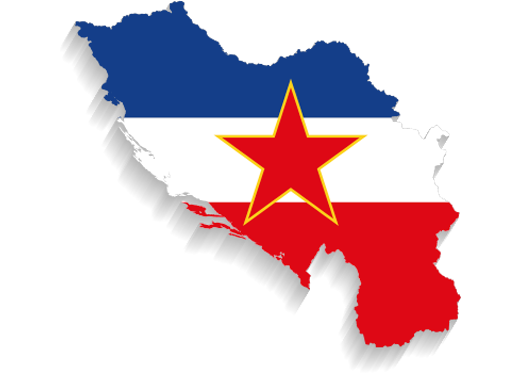(Grant Agreement n. 669194)
The academic elite was closely linked to the state apparatus and the party. During the 1960s, when the Western European integration question was a debated issue within the party, academic experts were also involved in broader analyses of Yugoslavia’s place and stance vis-à-vis the European Economic Community (EEC). By the late 1960s the ideological aspects of the question had been resolved at the party level and relations with the EEC were mostly dealt with at the state apparatus level.
As no veritable public debate on Western European integration took place within the country during the 1970s, Yugoslav academic journals (including the Belgrade-based Medjunarodni Problemi, the Zagreb-based Politička Misao and the Journal of Information and Organisational Sciences) limited themselves to analyses of specific aspects of the European integration process, focusing for instance on regional, agricultural and industrial policies.
Instead, the leading Yugoslav journals covering international affairs (above all, Medjunarodna Politika, International Politics) worked as mouthpieces for the state authorities, presenting to the specialised public the official federal strategies towards the EEC every time a major agreement with it was concluded. Medjunarodna Politika, edited by the Belgrade-based Institute for International Politics and Economy (Institut za Medjunarodnu Politiku i Privredu), published numerous articles authored by members of the Federal Executive Council (Savezno izvršno veće), the Federal Foreign Trade Secretariat (Savezni Sekretarijat za Spoljnu Trgovinu) and the Federal Foreign Affairs Secretariat (Savezni Sekretarijat za Inostrane Poslove).
Another major federal research institute, the Institute for Foreign Trade (Institut za Spoljnu Trgovinu), was involved in analyses of the status of Yugoslavia’s relations with the EEC and emphasised the need for Yugoslavia to be assisted by the EEC as a developing country. Its contribution to the debate can hardly be defined as independent, as its director in the mid- to late-1970s, Milan Aleksić, was also a member of the presidency of the party’s Central Committee.
The most important and widely circulated book concerning Yugoslavia’s relations with the Community was published in 1969 and was addressed to the business world. It was co-authored by four senior officials in the Federal Foreign Trade Secretariat (Milica Žiberna, Vera Mijalković, Blagoje Rajković and Djordje Stojković) and entitled ‘The European Economic Community and the position of Yugoslavia’ (Evropska ekonomska zajednica i položaj Jugoslavije). The book was explicitly intended as a guide for Yugoslav enterprises, chambers of commerce and regional banks on how to better integrate with the Western European economic system. For more than a decade, and despite the evolution of the EEC during the 1970s, it remained the only reference book on the topic. Only in the mid- to late-1980s, faced with the economic crisis at the federal level and the parallel progress of the EEC single market, did the academic world and research institutes resume their interest in and research on the European integration process.
* This text summarises some of the research findings of PanEur1970s team member Benedetto Zaccaria, which are published as a chapter in PanEur1970s’ academic edited book. For a link to the e-book, please see Yugoslavia’s “Overview” webpage of this map.
